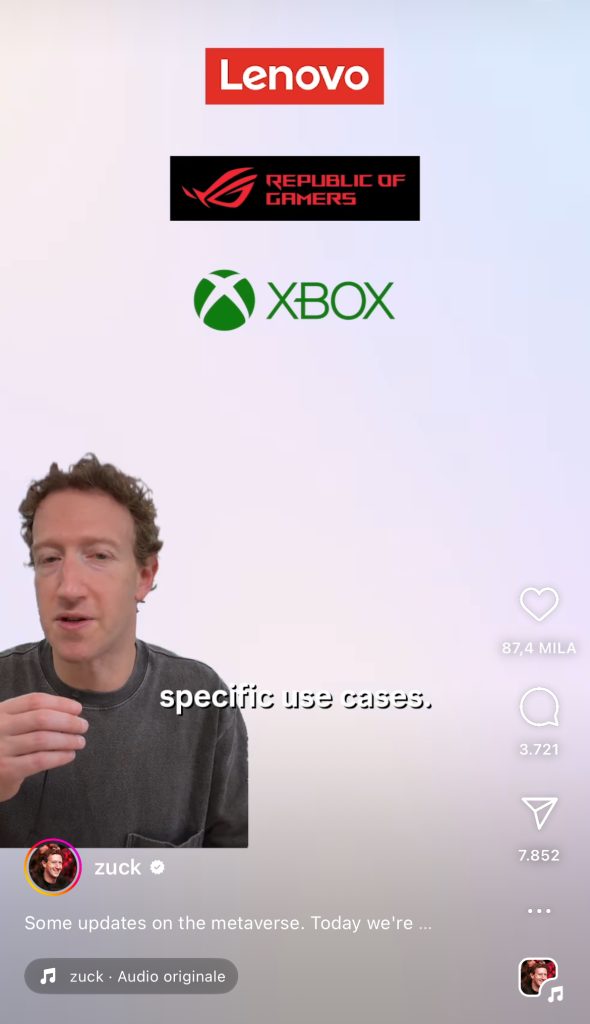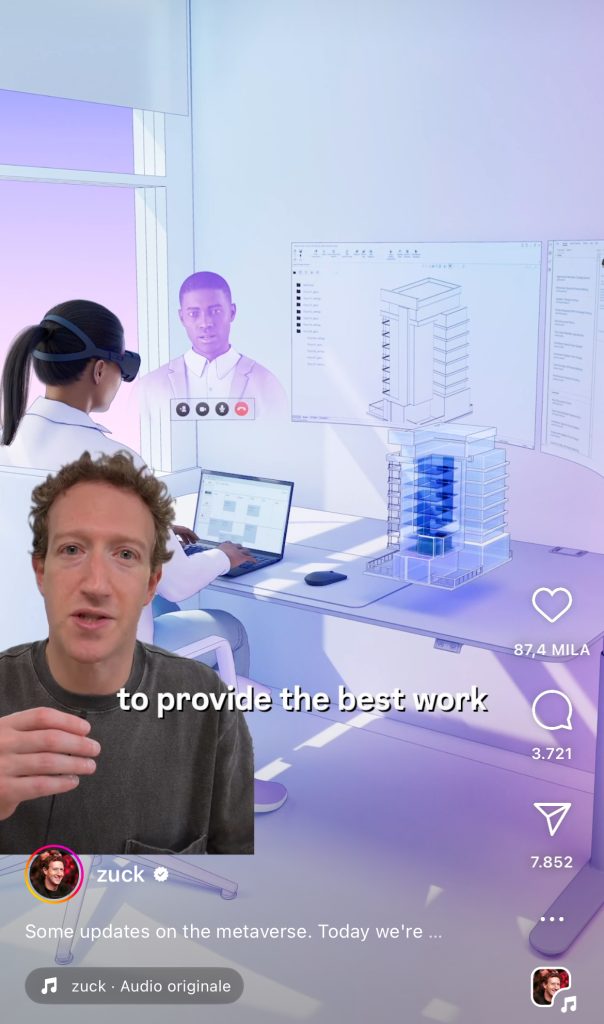In the picturesque Canton of Ticino, Lugano has transformed itself from a charming Swiss-Italian lakeside city into a burgeoning hub for cryptocurrency and blockchain innovation. Over the past decade, Lugano has embraced digital assets and blockchain technology with a strategic and forward-thinking approach, positioning itself as a leading city in Europe’s crypto landscape. This article explores Lugano's journey to becoming a crypto-friendly city, its implementation of the LVGA strategy, and its aspirations for the future.
Lugano’s crypto journey began with its recognition of the potential of blockchain and digital assets to drive economic growth, foster innovation, and enhance its global reputation. Switzerland has long been a proponent of blockchain technology, with the country often referred to as "Crypto Valley" due to its blockchain-friendly policies and infrastructure, especially in the canton of Zug. Lugano, inspired by this success, sought to replicate and localize these efforts in Ticino, probably achieving even more results, considering that the mayor of Lugano, already in office for some time, is a great supporter
.
The city’s commitment to cryptocurrency became evident when it announced partnerships with key blockchain organizations and hosted numerous conferences (like Plan B) to promote dialogue and innovation in the sector. Lugano’s open-minded regulatory stance and proactive engagement with blockchain technology attracted startups, investors, and developers from around the globe.
A significant milestone in Lugano’s crypto journey was the introduction of the LVGA (like a local digital currency) initiative. The strategy is centered around three core pillars:
Lugano’s ambitions go far beyond merely integrating cryptocurrency into its local economy. The city envisions becoming a global leader in blockchain technology and digital finance. Here are some of its future goals:
While Rome prepares a tax sting on cryptocurrencies in the 2025 budget bill for capital gains and other proceeds from blockchain operations in Lugano, mayor Michele Foletti, who has contributed in recent years to transforming the city into a real Monte Carlo, sent the Italians to follow their example, furthermore having an indigenous digital currency like LGVA which is perfectly equivalent to the Swiss franc, has transformed many projects and events for the city into an economic opportunity for everyone, considering that if you use it there is a 10% cash-back and if for example you run a marathon you can also "earn" it. In short, the best resource for the future and which Lugano has a clear key to, is the diversification of payments, therefore freedom, the important thing is to have more and more options

Born in Italy in 1976. Industrial computer technician and Political Science graduate. Web & Web 3.0 skilled. Involved in major Autonomous Organizations Decentralized. Real Estate Expert - Extrajudical civil mediator. Negotiator
After the 6 hours down occurred last week and the achievement of more than one billion total transactions couple of days ago, popular blockchain The Open Network (TON), linked to Telegram, is getting a good performance, with a growth of over 7%.
The transaction's increase, according to data from the analysis platform TON Scan, exceeded 1.04 billion, half of which occurred in the last three months alone. The rapid increase in the number of transactions indicates the growing commitment of the TON platform, supported by integration with Telegram's billion global users. The continued growth of the TON blockchain can largely be attributed to recent developments, including the introduction of the W5 smart wallet standard.
Over the past week, TON ecosystem has faced a series of setbacks amid a wave of unfavorable news. The turbulence began with the arrest of Telegram founder Pavel Durov, followed by two significant blockchain network outages that halted block production. In total, in just 68 days, the top ten coins within the TON ecosystem have collectively lost $5.13 billion in value.
Today arrived a message from Pavel Durov arrives, after several days during which, for obvious and well-known reasons, communications had ceased, and $TON confirms his desire to roar again. +7% in the last 24 hours, in the face of a crypto market that continues to suffer and move sideways before today's unemployment data, at 2.30pm. A situation which, however, began to develop as early as Thursday afternoon and which confirms that in reality there is something else that is moving on the $TON network and which is helping its recovery. There is an airdrop coming in addition to that of Hamster Kombat, and it will be that of Catizen, another game with a large following among those that have been popular on Telegram.
SOURCE: Coindesk, Criptovaluta.it
READ ALSO ---> "Is Disney back in the metaverse?" by Ilaria Vanni

Ilaria Vanni is a TV journalist for italian broadcasting and coordinator of The Meta Economist portal. She has a philosphy degree and she's now studing the economic and technological issues connected to the new frontiers of the metaverse.
As in many economic fields, also in the ecology blockchain aims to create transparent and traceable operations. Blockchain can be used to track and verify transactions, without the need for a centralized intermediary. This makes it particularly suitable for solar energy, which is produced in a decentralized way by solar panels installed on the roofs and land of private citizens. Many experiments in the world want to prove that energetic communities can be an everyday reality. Maybe with blockchain everything can be simplify.
Solar energy with photovoltaic (PV) converts sunlight directly into electricity, while solar thermal uses sunlight for heating purposes. Both forms have their unique advantages and applications and provide future society with clean energy sources.
"Blockchain technology - reported Gree.org - is a decentralized and transparent digital ledger. It uses cryptographic algorithms and consensus mechanisms to verify and record transactions. Smart contracts, enable automated and self-executing agreements without the need for intermediaries.
Indeed, one of the main advantages of blockchain for solar energy is the possibility of creating a peer-to-peer market for energy exchange between producers and consumers. Currently, solar energy produced by photovoltaic panels is sold to the electricity grid at fixed prices, which often do not reflect the real value of the energy based on supply and demand.
Blockchain technology offers many advantages in the solar energy sector by improving transparency, efficiency, and security of energy transactions. Here is a detailed analysis of how this technology can be applied:
In summary, implementing blockchain in the solar energy sector not only improves the traceability and reliability of energy but also promotes the automation and security of energy transactions, contributing to a more sustainable and robust energy market.
Green.org underlines some case study in real world, witnessing several examples which demonstrate the successful integration of solar energy and blockchain technology. One example is the Brooklyn Microgrid project in New York. This project utilizes blockchain to enable peer-to-peer energy trading among residents, creating a self-sufficient and sustainable community.
Another example is the Energo project in Thailand. It combines blockchain technology with solar energy to provide affordable and reliable electricity to rural communities. This initiative empowers local residents and reduces energy poverty through decentralized energy generation and distribution.
SOURCE: Green.org
READ ALSO ---> "Is Disney back in the metaverse?" by Ilaria Vanni

Ilaria Vanni is a TV journalist for italian broadcasting and coordinator of The Meta Economist portal. She has a philosphy degree and she's now studing the economic and technological issues connected to the new frontiers of the metaverse.
Address poisoning is a type of attack aimed at holders of cryptocurrencies. It's a kind of attack where someone watches a blockchain for transactions, then sends a small amount of crypto to an address that looks very similar to the original one.
Address poisoning can indeed be a significant concern in the crypto space. It's a form of phishing attack where attackers try to trick users into sending funds to a fraudulent address by creating one that looks very similar to a legitimate one. This is often done by making slight modifications to the characters or using visually similar characters.
For example, they might change a lowercase "L" to an uppercase "i" or add an extra character that's hard to notice at a glance. Unsuspecting users might not notice the difference and end up sending their funds to the attacker's address instead of the intended recipient.
To mitigate the risk of falling victim to address poisoning, users should always double-check the addresses they are sending funds to, preferably by using copy-and-paste rather than typing them manually. Additionally, using hardware wallets or wallets with built-in address verification mechanisms can provide an extra layer of security. It's also essential for crypto users to stay informed about common phishing tactics and remain vigilant when conducting transactions.
Address poisoning is quite a tricky issue in the crypto space. This attack involves the creation of a crypto address that looks like the original one by attackers, with the aim of deceiving the owner of the original address, inducing him to make a transaction to the wrong address.
Address poisoning takes advantage of the fact that many cryptocurrency transactions and wallets have long strings of characters that are difficult to verify at a glance.
In fact, attackers changes only a few characters in the middle. The goal is to deceive the user, pushing him to send funds to the wrong address during copy and paste.
To protect your wallet from Address Poisoning there are several good practices to follow:
Final Considerations
By taking proactive measures to protect your transactions and informing yourself in advance about potential risks, you can significantly reduce the risk of falling victim to such attacks. By adopting these proactive measures and staying vigilant, individuals can better safeguard their crypto transactions against address poisoning and other malicious activities.
READ ALSO ---> "Is Disney back in the metaverse?" by Ilaria Vanni

Ilaria Vanni is a TV journalist for italian broadcasting and coordinator of The Meta Economist portal. She has a philosphy degree and she's now studing the economic and technological issues connected to the new frontiers of the metaverse.
More than a year and a half after the FTX exchange's bankruptcy a new proposal to repay victims of the 2022 crash, was unveiled. FTX now promises to refund all creditors and says the plan is "subject to finalization and approval" by the U.S. Bankruptcy Court for the District of Delaware. Some experts say that may not be enough.
FTX has proposed a new reorganization plan that would see a whopping 98% of its creditors recover 118% of their claims - in cash - within 60 days of court approval, according to new documents filed Tuesday evening, shared also by Coindesk.
FTX's available assets would now be between 14 and 16.3 billion dollars, thanks to the intense fund recovery activity through the liquidation of collateral (and non-collateral) assets of the company.
Only creditors who hold claims of less than $50,000 will be entitled to the 118% recovery.
According to FTX's plan, other non-government creditors will recover 100% of their claims plus interest of up to 9% to compensate them “for the time value of their investments.” The deal is still subject to approval by the Delaware bankruptcy court overseeing the bankruptcy case. The proposed payments are higher than previous estimates from FTX Assets, which in October said it expected to repay only 90% of client funds.
From the creditors side, the conditions are not so positive. Wired reported that "some creditors of the bankrupt crypto exchange FTX are preparing to reject a plan that would see them recover 118 percent of the money they lost. The proposal is far less generous than it might seem, they claim".
SOURCE: Coindesk, Wired
READ ALSO ---> "Is Disney back in the metaverse?" by Ilaria Vanni

Ilaria Vanni is a TV journalist for italian broadcasting and coordinator of The Meta Economist portal. She has a philosphy degree and she's now studing the economic and technological issues connected to the new frontiers of the metaverse.
Binance founder has been sentenced for 4 months in prison. The cryptocurrency trading platform created in 2017 by Changpeng Zhao said to be ready to cover at all costs.
Binance founder Changpeng Zhao was sentenced to four months in prison for putting profits before the law. The company was found guilty of unintentionally helping to finance several criminal activities around the world. Zhao, who is 47 and has a personal fortune of nearly $40 billion, pleaded guilty on the last day of April and will now have to spend several months in prison in the United States, as well as pay large fines.
"The sentence, handed down in a US federal court in Seattle, is far lighter than the three years prosecutors had argued for" - CNN journalist Allison Morrow says
“Words cannot explain how deeply I regret my choices that result in me being before the Court,” he said in a letter to the judge. “Rest assured that it will never happen again.”
CNN also reported that Binance agreed to pay more than $4 billion in fines and other penalties as part of a coordinate settlement with the federal government last fall. The company admitted to engaging in anti-money laundering activities, unlicensed money transmitting and sanctions violations.
Zhao according to Bloomberg, agreed to step down as CEO and pay $200 million in fines.
SOURCE: Binance.com, CNN News
READ ALSO ---> "Is Disney back in the metaverse?" by Ilaria Vanni

Ilaria Vanni is a TV journalist for italian broadcasting and coordinator of The Meta Economist portal. She has a philosphy degree and she's now studing the economic and technological issues connected to the new frontiers of the metaverse.
The cryptocurrencies economical revolution redefines the frontiers of the global market, with unprecedented challenges and opportunities. The regulation of this emerging sector represents an ideological and practical battleground, with various governments and international bodies trying to find a balance between safeguarding financial stability, protecting consumers and supporting innovation. Some nations have adopted a rigorous stance, introducing restrictive measures to mitigate potential risks. Others like Singapore and Switzerland have stood out for their open and inspiring regulatory frameworks, becoming hubs for blockchain-based businesses and positively influencing the global digital economy. International cooperation will be crucial in the fight against money laundering and terrorist financing which are the most dangerous risks of this new exchange system.
By 2030, blockchain is expected to generate one million new open source software engineering jobs. The most in-demand blockchain careers for 2024 include developers, project managers, solution architects, UX/UI designers, quality assurance engineers and data analysts.
Blockchain-related job opportunities are constantly evolving thanks to the growing adoption and diversification of blockchain technology applications across various industries. Here are some of the new job opportunities that may emerge:
These are just some of the new job opportunities connected to blockchain. Blockchain technology is still evolving, and there are many more possibilities that could emerge as the technology continues to mature and be adopted into new industries.
Cryptocurrencies have given rise to a wide range of new jobs and professional opportunities. Here are some examples:
These are just a few examples of jobs created by cryptocurrencies, but the landscape is constantly evolving as technology advances and cryptocurrencies become increasingly adopted across different industries and sectors.
READ ALSO ---> "Is Disney back in the metaverse?" by Ilaria Vanni

Ilaria Vanni is a TV journalist for italian broadcasting and coordinator of The Meta Economist portal. She has a philosphy degree and she's now studing the economic and technological issues connected to the new frontiers of the metaverse.
Bounds and links are a fundamental law in everything, as mother nature teaches us everyday. But most of the time in life and market fields we prefer dealing with competitors or, worse, we call them enemies. None of the above for Mark Zukerberg. We talk about an important collaboration between Disney and Epic Games and now there's another one behind the corner, or we have to say "on the horizon". In fact, Meta CEO recently announced that it will open up its Quest 3 OS to third-party companies, allowing other manufacturers to build their own mixed reality headsets based on its software. This is a move that will probably influence the virtual and augmented reality sector, also due to the fact that there are already important companies that have embraced Quest OS, specially renamed Meta Horizon OS.

The call for the other companies includes at the moment ASUS' Republic of Gamers (ROG) brand, which is working on a new "performance gaming" headset, Xbox and Lenovo which is developing devices for "productivity, learning and entertainment". Zuckerberg revealed this operation in a short video, that you can watch in an interesting post by Arun Prasath S, an important entrepreneur. Meta also states that it is working on a limited edition Xbox-inspired Quest headset. In this regard, it is worth mentioning that Microsoft and Meta recently collaborated to bring Xbox cloud gaming to Quest. Meta is also calling on Google to bring the 2D Play Store to Meta Horizon OS and adds that it will make software developed through Quest App Lab available in the Horizon Store. Finally, Meta is developing a new framework to allow mobile developers to create mixed reality apps. This strategy should help bring more content into the Meta Horizon OS ecosystem which could become a sort of Android for mixed reality.

In the official communication Meta said:
"Meta Horizon OS is the result of a decade of work at Meta to build a next-generation computing platform. To pioneer standalone headsets, we developed technologies like inside-out-tracking and self-tracked controllers. To allow for more natural interaction systems and social presence, we pioneered hand, eye, face and body tracking. And for mixed reality, we built a full stack of technologies for blending the digital and physical worlds, including high-resolution Passthrough, Scene Understanding and Spatial Anchors. This long-term investment that began on the mobile-first foundations of the Android Open Source Project has produced a full mixed reality operating system used by millions of people.
Developers and creators can take advantage of all these technologies to create mixed reality experiences. And they can reach their audiences and grow their businesses through the content discovery and monetization platforms built into Meta Horizon OS, including the Meta Quest Store, which we’ll rename the Meta Horizon Store".
Someone said this is the "resurrection of metaverse", we prefer to say that collaborations always bring important revolution. Maybe this is the new path for the metaverse to become part of our everyday life.
SOURCE: Meta
READ ALSO ---> "Is Disney back in the metaverse?" by Ilaria Vanni

Ilaria Vanni is a TV journalist for italian broadcasting and coordinator of The Meta Economist portal. She has a philosphy degree and she's now studing the economic and technological issues connected to the new frontiers of the metaverse.
Bitcoin is ready to open another chapter. For the most popular cryptocurrency, born in 2009 from the idea of a programmer who calls himself Satoshi Nakamoto is coming a new important revolution: the fourth halving. The halving established by the four-year cycle of the asset will inevitably change its acquisition and use methods. In fact, a halving of daily emissions is expected: 6.25 Bitcoins will no longer be created for each block of transactions, but 3.125. With very important consequences.
The halving involves a decrease in the creation of Bitcoin, which from today goes from 900 to 450. The cryptocurrency therefore becomes increasingly scarce, in other words it can be said it will become "a more scarse than gold", said SkyTg 24.
The price of Bitcoin now stands at around $64,500, close to the record recorded in November 2021, before the new peak reached last month, triggered precisely by the wait for the halving appointment . The halving will inevitably define new balances, especially in the medium and long term. As always, we encourage you to weigh every decision, not based solely on short-term forecasts. Looking back, after each Halving we have witnessed an impressive growth in the value of bitcoin.
SOURCE: SKYTG24
IMAGE CREDITS: André François McKenzie
READ ALSO ---> "Google's Gemini enters the AI market with a completely new model" by Ilaria Vanni

Ilaria Vanni is a TV journalist for italian broadcasting and coordinator of The Meta Economist portal. She has a philosphy degree and she's now studing the economic and technological issues connected to the new frontiers of the metaverse.